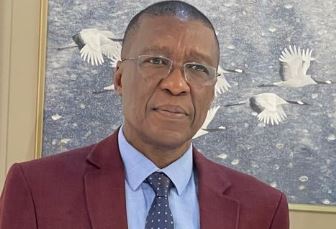The Reconstituted Joint Monitoring and Evaluation Commission (RJMEC) on Monday said the security and political situation in South Sudan has deteriorated due to recurrent violations, which have frustrated and now stalled the implementation of the 2018 revitalized peace agreement.
The Commission’s Quarterly Report on the status of implementation of the Agreement which covered the 1st quarter of the year (January – March 2025) and prepared pursuant to Article 7.9 of the R-ARCSS documented “repeated violations” of the Revitalised Agreement.
“During the quarter, implementation of the Agreement ground to a halt, as the Parties engaged in repeated violations of the R-ARCSS and the political and security environment markedly worsened,” the report noted. “In scenes not seen since the signing of the R-ARCSS over six years ago, armed conflict and violence erupted across the country, several high-ranking opposition members and Parliamentarians were detained and imprisoned, and the First Vice President Dr Riek Machar Teny was put under house arrest.”
“In addition, ministerial positions at the state and national levels and those within the Presidency were reshuffled, and portfolios within some Agreement institutions and mechanisms were abandoned,” the report added.
According to the Commission, in some parts of the country, civilians, including women and children, have borne the brunt of the fallout and have suffered serious human rights and humanitarian law violations, including death, injury, and displacement due to military operations and connected armed clashes.
“However, the Commission reiterates that the R-ARCSS remains the most viable framework to steer South Sudan towards the path of stability and prosperity, adding that the current political and security situation is fragile and highly volatile, posing a serious threat to the survivability of the R-ARCSS,” the report said. “This is due to various factors, including several weeks of armed violent clashes between forces of the SSPDF and SPLM/A-IO, both parties to the Revitalised Peace Agreement. These clashes are now spreading to several areas across the country, including reported attacks on some cantonment sites and training centres such as Luri, Rajaf, and Panyume, among others.”
The Commission also said that peace implementation is threatened by the arrest and continuous detention of some senior SPLM/A-IO political and military leaders who are integral parts of the R-ARCSS and critical for its full implementation.
“The other factor is the removal and replacement of some opposition leaders from various portfolios at the national and state levels without consultation, consensus, and compromise with the concerned Parties, as provided for in the R-ARCSS,” the report added.
The Commission said that another threat to the survivability of the agreement is the abandonment of official portfolios, including that of some Agreement Institutions and Mechanisms, by SPLM/-IO leaders and officials out of fear of being targeted for arrest and/or detention. The inability of the leadership of the parties to dialogue and resolve the emerging security and political challenges within the framework of the Revitalized Peace Agreement is another issue, according to the RJMEC.
According to the Commission, these factors have contributed to heightening of political tensions, and undermining of trust and confidence built between the peace partners over the six years of implementation, thereby potentially eroding all possibilities of implementing the R-ARCSS, especially at this critical time.
“It is worth noting that in this two-year extension of the Agreement, there are less than 20 months left to elections in December 2026,” RJMEC reminded.
The Commission emphasized that the heightening of political and security tensions in South Sudan does not bode well for the sustaining of durable peace and stressed that every effort must be made by the Parties to the Agreement to adhere strictly to the R-ARCSS and recommit to the cause of peace.
“While the trust among the Parties has been seriously dented, there remains some room for re-engagement and dialogue,” the report said. “It is important that Parties resort back to strict adherence to the Cessation of Hostilities Agreement, and the cardinal principles stipulated in Chapter II of the R-ARCSS, as well as undertake an immediate cessation of hostilities on all fronts.”
“Also, efforts must be stepped up to complete the unification of forces, unconditional release of those detained, and move forward with the Constitution-making process,” the reports recommended.




